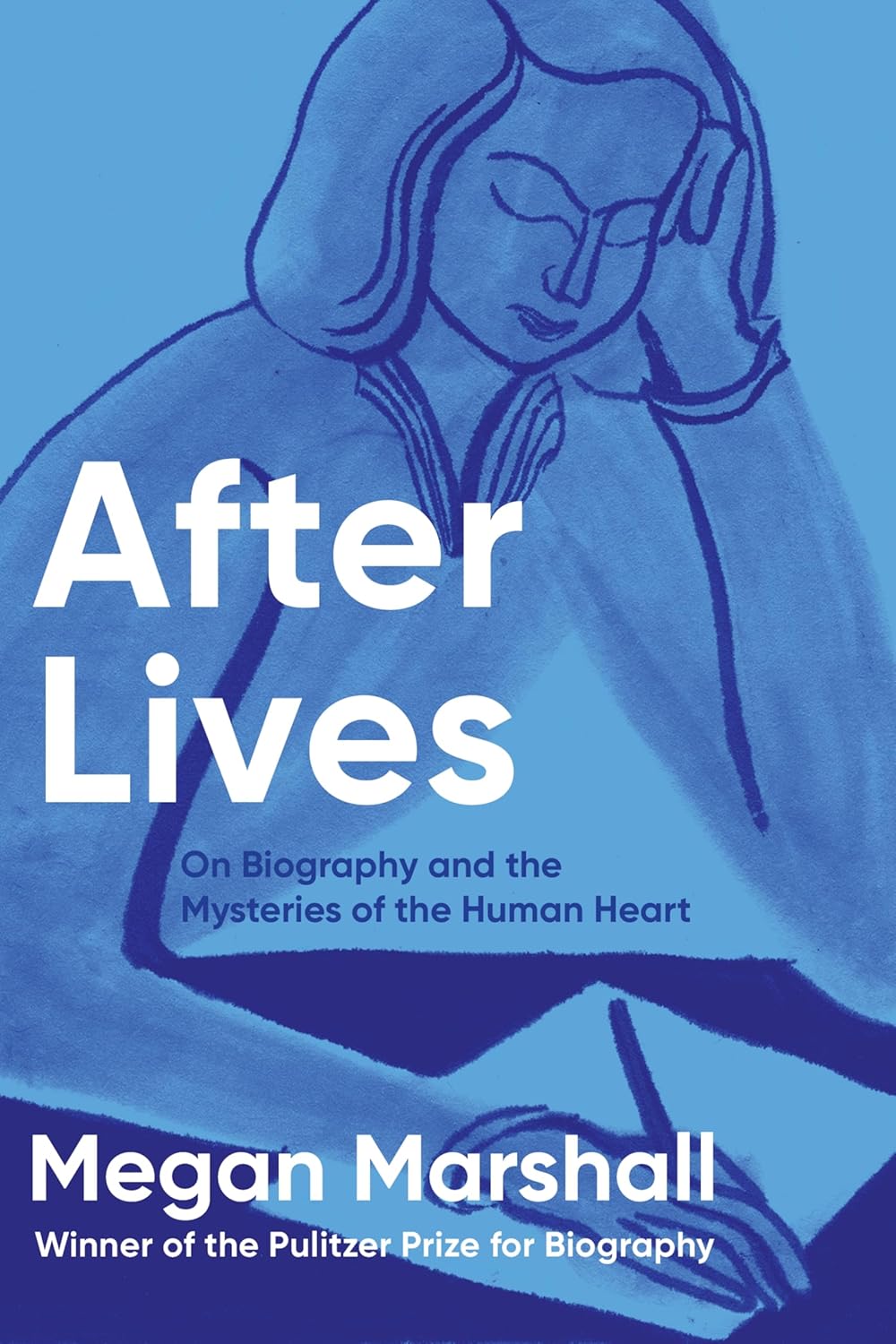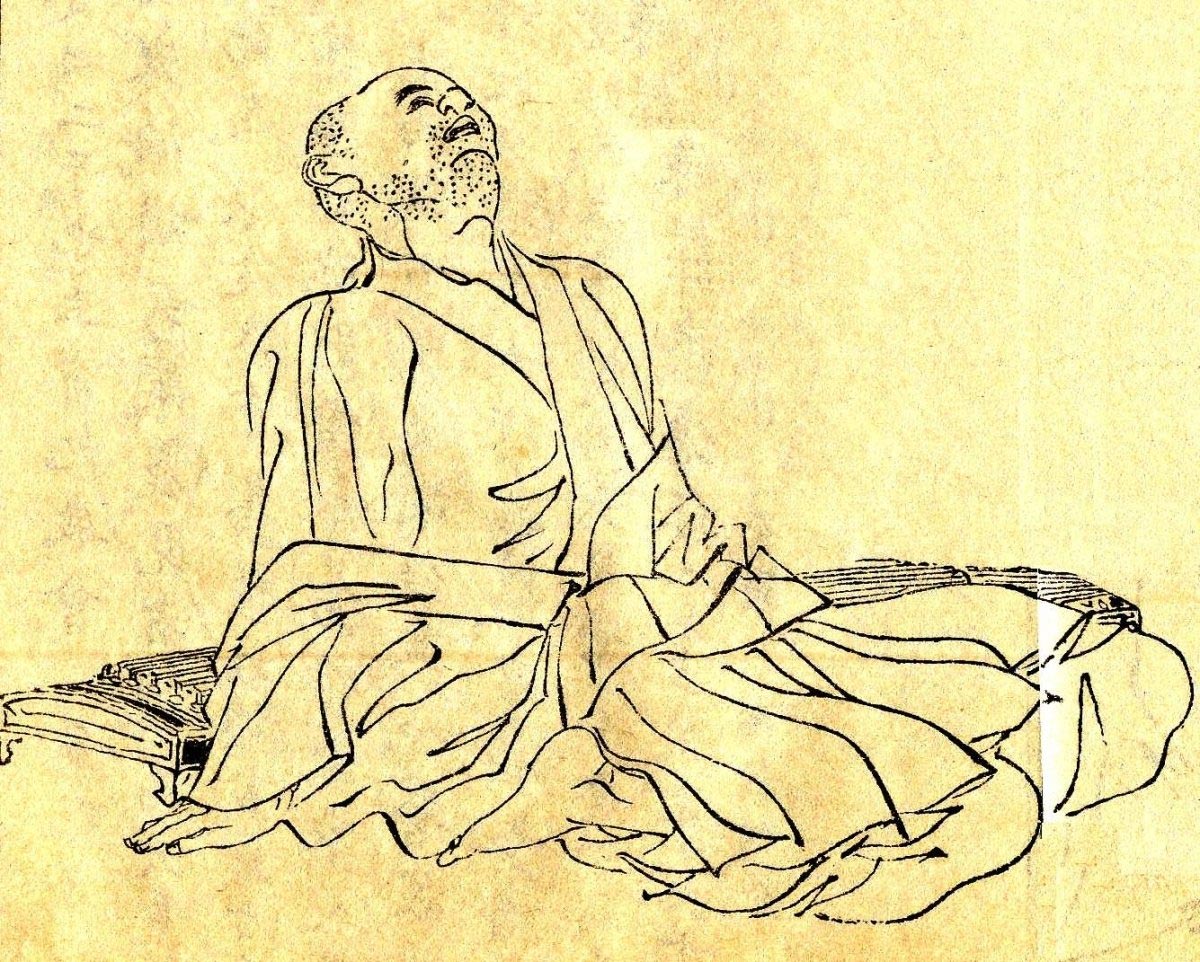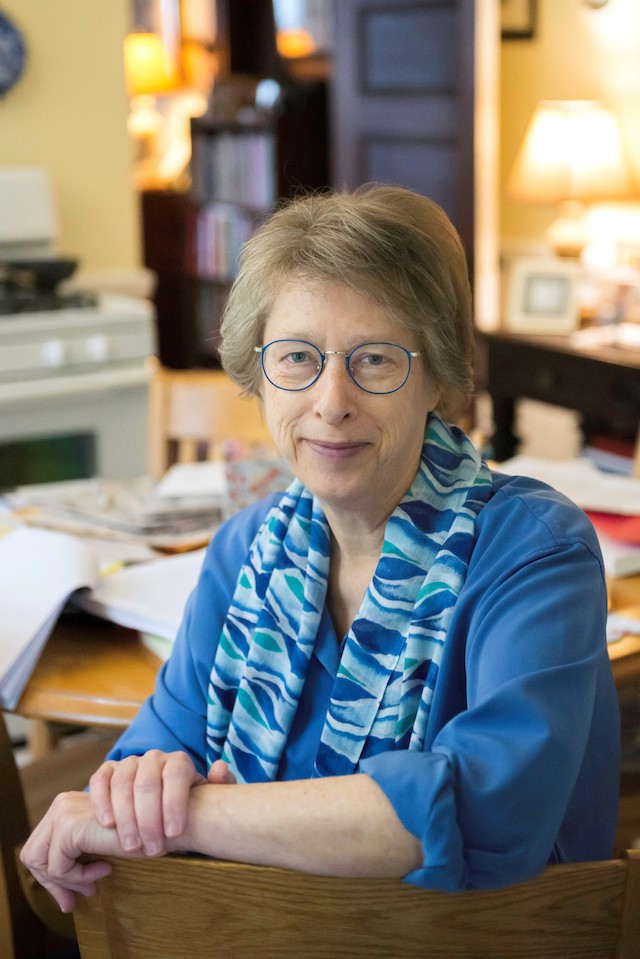After Lives
After Lives unfolds as six interwoven essays, each reinventing the personal essay as a portal to the past and its lessons for living into the future. The result is a candid meditation on how sharing another person’s story can illuminate our own lives. Megan Marshall’s innovative books, including The Peabody Sisters and the Pulitzer Prize-winning Margaret Fuller, are treasured works of American biography. In the richly absorbing essays of After Lives, Marshall turns her narrative gift to her own art, life and the people in it.
Biography Matters Because Life Matters
Unravelling the Mysteries of the Human Heart
One of the central themes of After Lives is what Megan Marshall calls the mysteries of the human heart. She discusses biography’s capacity to unravel these mysteries, noting that there are always questions that can’t be answered in any life story. When talking about her research process, Megan exudes enthusiasm for discovery. ‘There’s nothing like it’, she says, ‘describing the thrill of chasing clues and uncovering hidden stories’.
Making Sense of What it Means to Live
After Lives: Six Interwoven Essays
The unconventional format of After Lives gives Megan the freedom to approach her story thematically, each essay highlighting a different facet of the human heart and a different chapter of her life. The narratives span far-flung times and places, from medieval Kyoto to 1960s California, as well as personal memories from her own life, yet they are united by Marshall’s introspective voice and quest for meaning.
Kamo no Chōmei, by Kikuchi Yōsai
Emotional Candour and Loss
One of the most personal stories in After Lives is Megan’s account of the illness and loss of her life partner, Scott. Writing about this painful chapter required deep vulnerability. She approached the story with great care, mindful of honouring Scott’s memory while still sharing her truth.
Marshall found that opening up about her grief ultimately deepened her empathy as a biographer, reminding her that writing about someone’s life, whether a public figure or a loved one, carries a responsibility to be respectful and truthful. The result is a poignant exploration of love and mortality, showing how even the darkest experiences can offer lessons when faced honestly.
Writing Herself into the Narrative
Megan makes a striking choice in After Lives: she places herself within the story, rather than remain the invisible biographer observing from afar. She recalls that for years she was an accompanist to the subject’s soloist, content to play a supporting role, but in this book, she embraces her own voice as part of the narrative. Marshall ensures her presence only enriches, not overshadows, the lives she portrays.
Character and Context
Marshall explores how character and context dance together to shape a life story. She notes that who a person is, their passions and flaws, drives the plot of their life, though the historical and cultural context sets the stage for their choices.
Placing the Character On Each Page
In After Lives, she illustrates this by weaving personal memories with broader historical settings. We see how her subjects’ fates were steered both by their own character and by the times they lived in, and how Marshall’s own life and era influenced the stories she chose to tell.
Lessons Learned from Lives
After writing After Lives, Megan realised that writing about others is never just about the past, it inevitably becomes an act of self-exploration, with every narrative choice revealing as much about her as about her subject. For her, studying others’ lives has always been a way to learn how to live, how not to live and what it means to live, a purpose After Lives affirms.
Megan Marshall’s voice is especially vital today, showing that blending meticulous research with emotional honesty can make biography a vibrant, relevant art form.
A Note from the Introduction to After Lives
‘. .. I’d entered a period I’ve come to think of as A.L.— ‘After Lives’—when the loose ends of the full-scale narratives I’d researched teased my imagination, and the documents of my own history, piled up in closets over the years, called out for exploration. I’d turned my back on my Californian upbringing to become a New Englander—or at least a writer about New England. It was time to close the gap.’
‘One of the things I’m most proud of about my new book is its cover’, Megan Marshall wrote. ‘The woman you see writing on a pad of paper is my mother, a promising painter whose career was derailed less than a decade after she’d sketched this self-portrait as an ambitious art student in the 1940s. My mother gave birth to her first child at 30, as I did mine 32 years later; like me, she’d worked at jobs she cared about and pursued her artistic ambitions during her twenties. We were both blessed with healthy children and the opportunity to love and care for them as they grew. We lived our adult lives on opposite coasts; the challenges we faced as working mothers were those of widely divergent times—and those that are perennial. My mother died at age sixty-eight in 1991, before I’d finished writing my first biography, The Peabody Sisters, a book that grew up alongside my two daughters as I was finding my way as a writer. My mother won’t read my new book either, but she is with me on the cover.’
Praise for After Life
‘An Esteemed Biographer Puts Her Own Life in the Spotlight’
New York Times review by Alexandra Jacobs
‘In this slim volume of essays, Marshall, a Pulitzer Prize-winning biographer, turns inward, reflecting on her discovery of old personal paraphernalia, including letters and photographs. She writes of her grandfather, Joe Marshall, who oversaw photography and film for the American Expeditionary Forces during the First World War, and of Jonathan Jackson, a Black high-school classmate, who was killed at 17 when he tried to free his older brother, a Black Power activist, from prison. The book also contains anecdotes about the death of her partner and revelations about her mother, a gifted painter who sacrificed her art in order to help raise her family.’
The New Yorker’s 100th anniversary issue
‘Megan Marshall has written a powerful and haunting book about memory, family, friendship and history. In these intricately braided essays, Marshall approaches her own life through the lives of others as she revisits her grandfather’s experience in World War I, a school friend’s tragic death, a stay in Kyoto, and a 19th-century biographical mystery. After Lives is an intimate and illuminating chronicle of the self from one of America’s best biographers.’
Heather Clark, author of Red Comet: The Short Life and Blazing Art of Sylvia Plath
‘Marshall ponders, with fresh urgency, the question…how to survive in this “husk of a world”. As it turns out, for the veteran biographer there’s only one possible answer: to keep looking at how other people have done it.’
Christoph Irmscher, Wall Street Journal
‘Can learning about other people’s lives inform how we live our own? This question arose as I read, or rather inhaled, Megan Marshall’s memoir After Lives: On Biography and the Mysteries of the Human Heart.’
Christian Science Monitor review by April Austin
‘Six essays that offer intimate reflections on [the author’s] life and work…candid, sensitive recollections.’
Kirkus Reviews
‘We are all biographers from childhood’, Marshall concludes her book. ‘Life is short, the ancient doctor Hippocrates warned, and art is long; the pursuit of a craft, and the lasting creation itself. So, too, is the art we make of lives.’
‘Megan Marshall has done it again. This time, her gentle, probing eye, her compassion and generosity, are turned inward. In moving and subtle prose, she explores her own canyons of grief, the origins of her interest in the lives of others, and vastly, beautifully, in the making of art itself.’
Ayana Mathis, author of The Unsettled and The Twelve Tribes of Hattie
Megan Marshall
Megan Marshall’s first publications were book reviews in The New Republic. She has written on American history and literature and women’s history in numerous publications including the New Yorker, the Atlantic, the New York Times Book Review, the London Review of Books, LitHub and Slate.
Her first biography, The Peabody Sisters: Three Women Who Ignited American Romanticism (2005), won the Francis Parkman Prize, the Mark Lynton History Prize, the Massachusetts Book Award in Nonfiction, and was a finalist for the Pulitzer Prize in biography and memoir. Marshall spent 20 years researching and writing the book, travelling to archives in Massachusetts, New Hampshire, New York, Ohio, California and Washington, D.C., and finding answers to longstanding mysteries in the Peabody and Hawthorne families.
Marshall’s second biography, Margaret Fuller: A New American Life (2013), a character-driven narrative grounded in fact that tests the boundaries of the form, was awarded the Pulitzer Prize in Biography in 2014 and the Massachusetts Book Award in Nonfiction. Her third, Elizabeth Bishop: A Miracle for Breakfast (2017), was a finalist for the Phi Beta Kappa Society’s Christian Gauss Award in Literary Scholarship. Innovative in form, Elizabeth Bishop interweaves biographical chapters with passages of memoir in which Marshall recalls her year of study with the poet in what turned out to be Elizabeth Bishop’s last workshop class. The book adopts features of the sestina, a verse form brought back into popular use by Bishop with her poems “A Miracle for Breakfast” and “Sestina.”
In 2022, Marshall received the BIO Award, the highest honour given by the Biographers International Organization, recognising her contributions to the art and craft of biography, and the Thoreau Society’s Walter Harding Distinguished Service Award for contributions to the study of American Transcendentalism.
Marshall was a visiting professor at Kyoto University in fall 2017, and the Gilder Lehrman Fellow at the Dorothy and Lewis B. Cullman Center for Scholars and Writers of the New York Public Library in 2014-15. She has received fellowships from the John Simon Guggenheim Foundation, the National Endowment for the Humanities, and the Radcliffe Institute for Advanced Study at Harvard University, as well as residencies at the Bogliasco Study Center and the T.S. Eliot House. An elected Fellow of the Massachusetts Historical Society, she is a past president of the Society of American Historians and a co-editor of Margaret Fuller: Collected Writings, forthcoming from Library of America.
Marshall teaches nonfiction writing and archival research in the MFA creative writing program at Emerson College where she was named the first Charles Wesley Emerson College Professor. She lives in Belmont, Massachusetts, midway between Boston and Concord, locations that figure prominently in her subjects’ lives. She is the proud grandmother of five young readers to whom she has dedicated her most recent book, After Lives: On Biography and the Mysteries of the Human Heart.
Other Writing
How Do You Like Your History? With Imaginative Leaps or Grounded in Fact?, The New York Times, March 7, 2025
“My Life with Left-Handed Women,” The New Yorker online, “Weekend Essay,” February 8, 2025
“Biography Without Modifiers,” Pulitzer Centennial website, June 2016
“Self-Interview,” Digital Americana, Summer-Spring 2014
“Tipped Off,” New York Times “Draft” Opinionator blog, March 23, 2013
"75 at 75: Megan Marshall on Elizabeth Bishop,” 92Y On Demand, posted March 28, 2014
“Why Biography?” Common-place
“The Impossible Art of Deciphering Manuscripts” Slate
“The Spirit of the Letter” Slate
“Donating Family Archives to Schlesinger Library” Schlesinger Library Newsletter
Women’s Work: The Female Transcendentalists and How We Read Them Today







